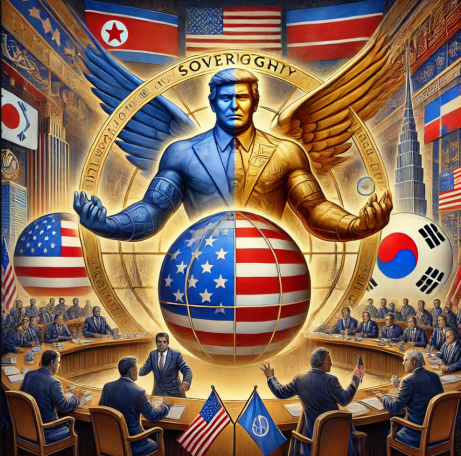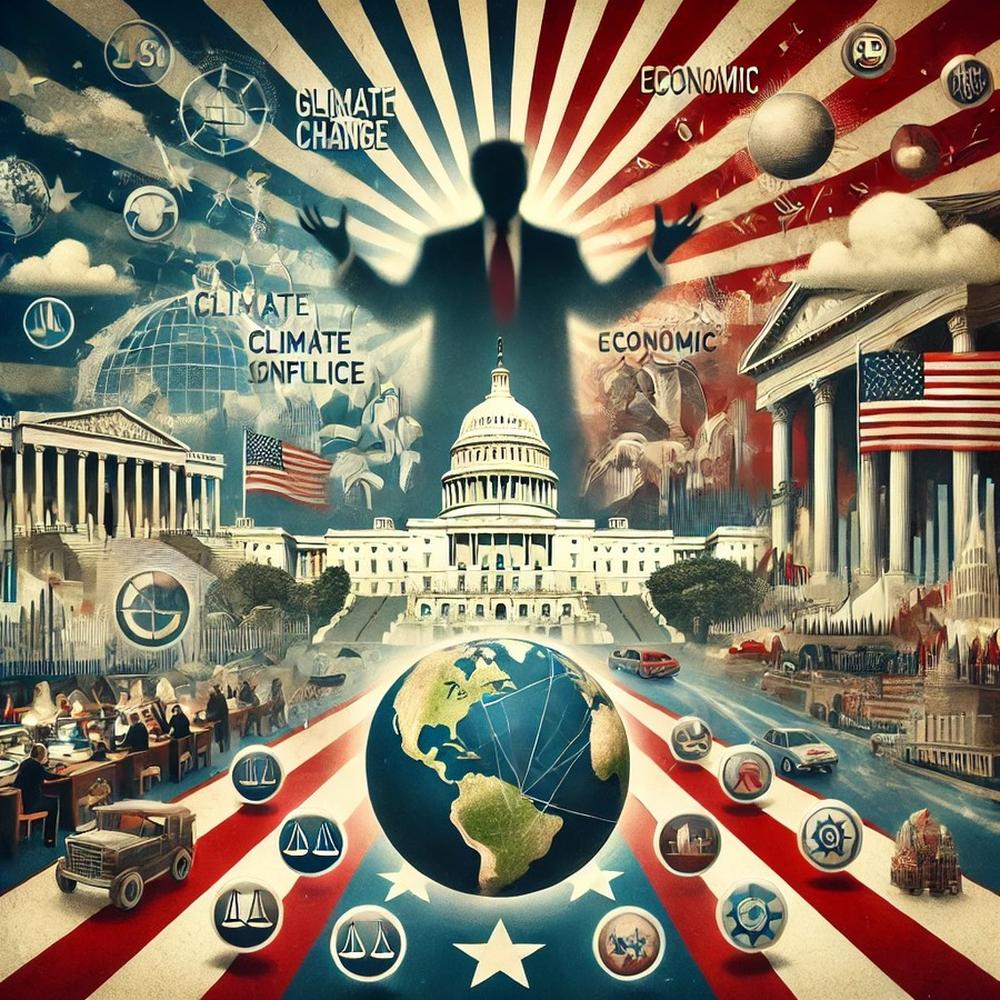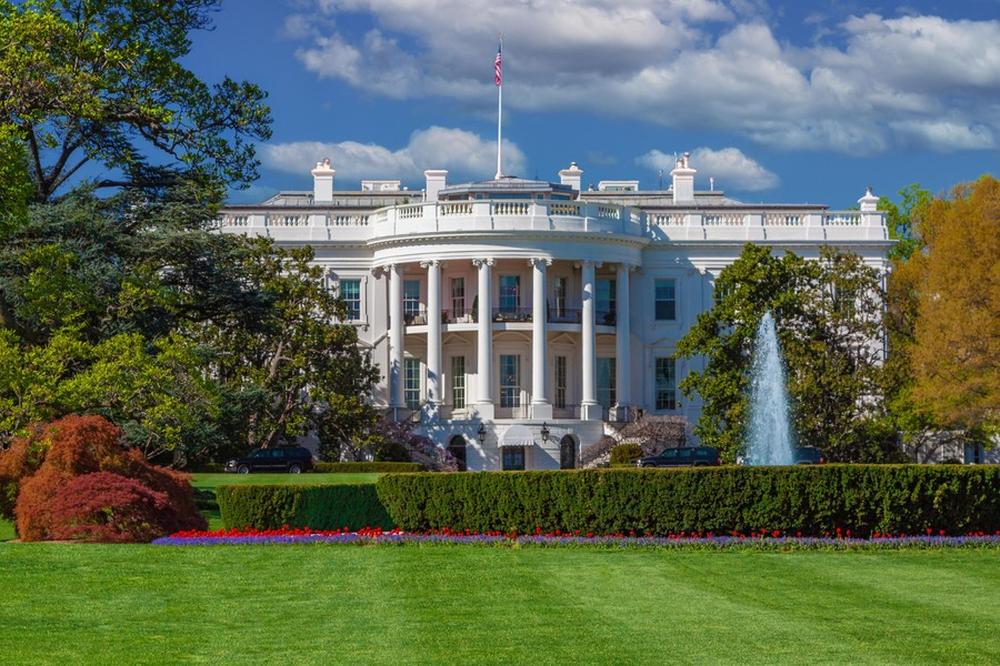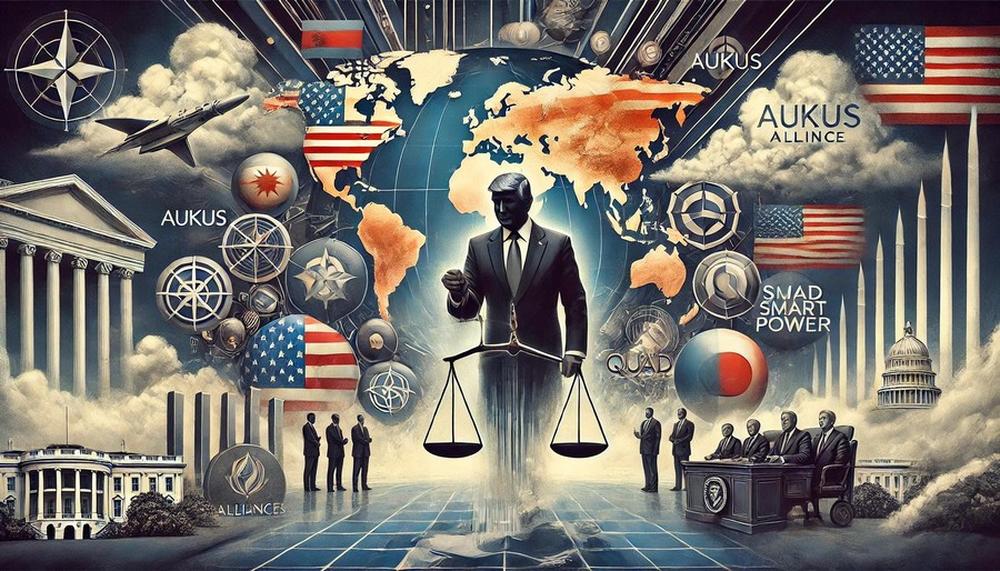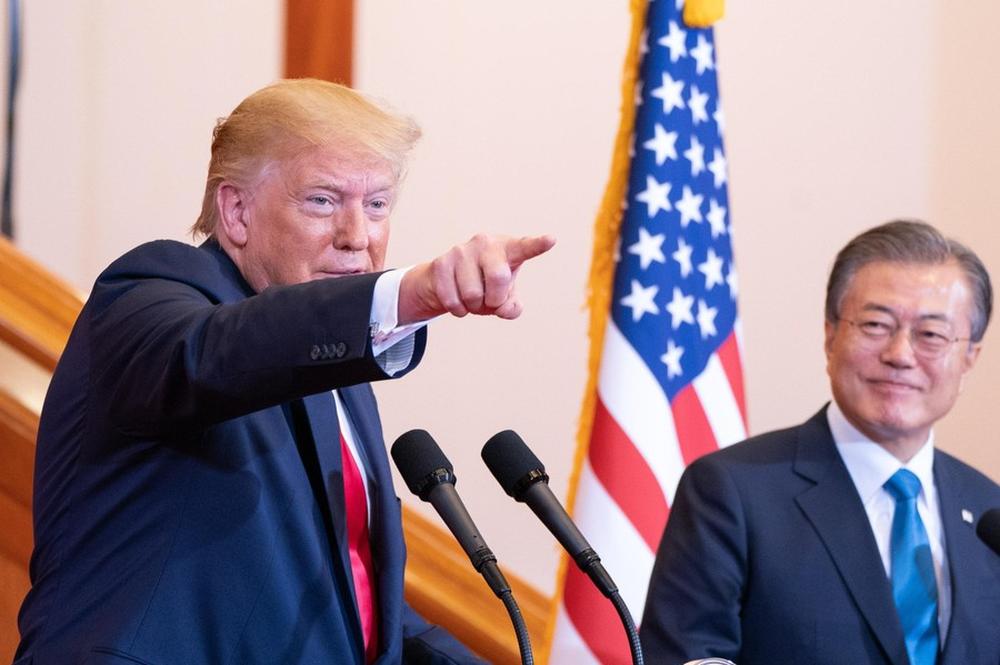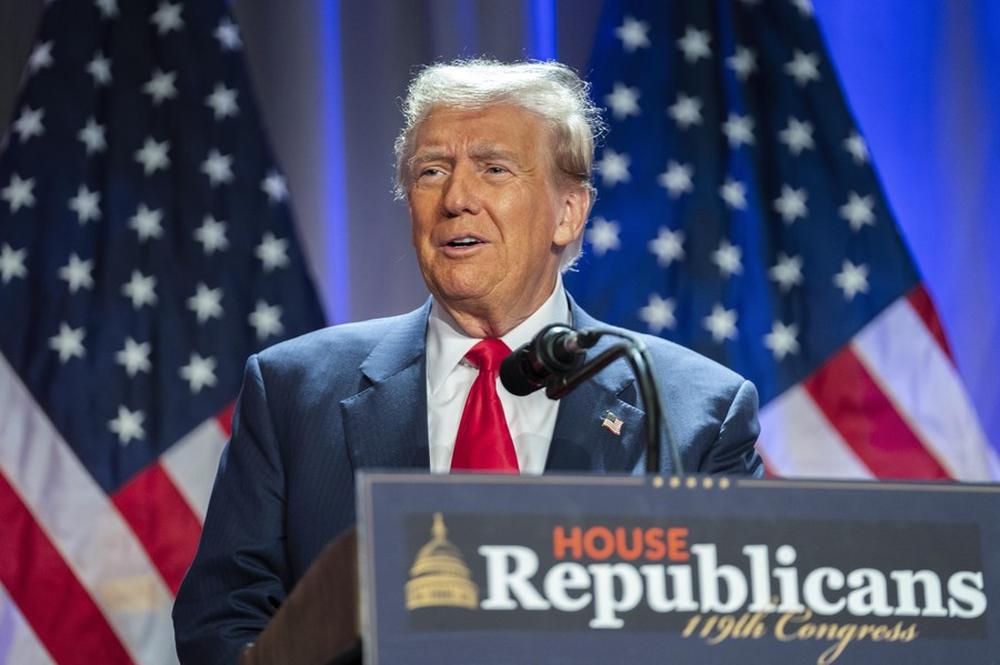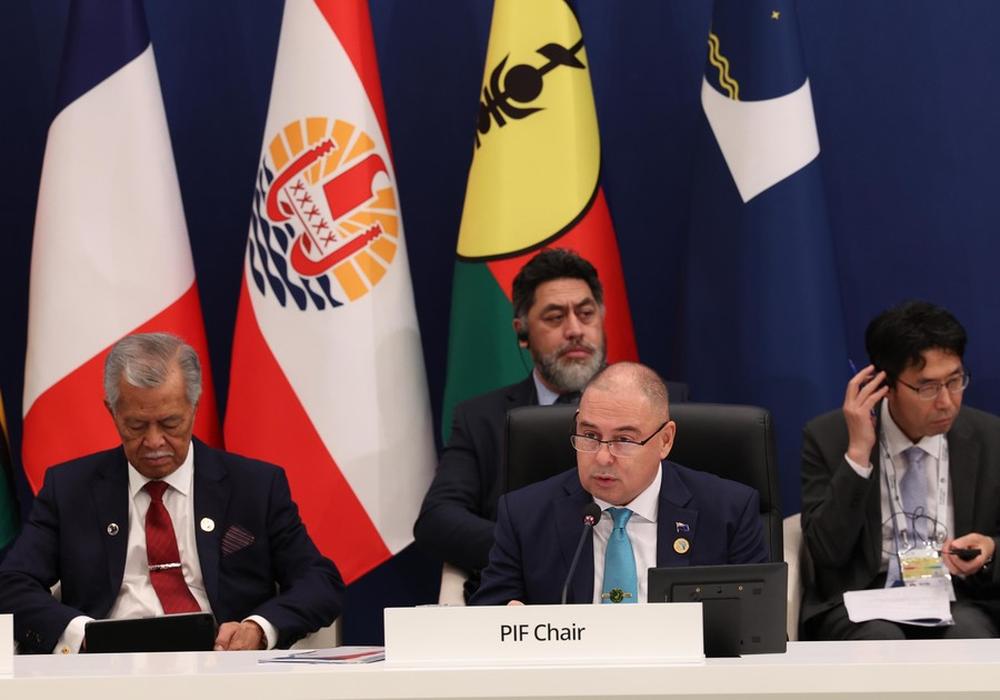- #China
- #Economy & Trade
- #Global Issues
- #US Foreign Policy
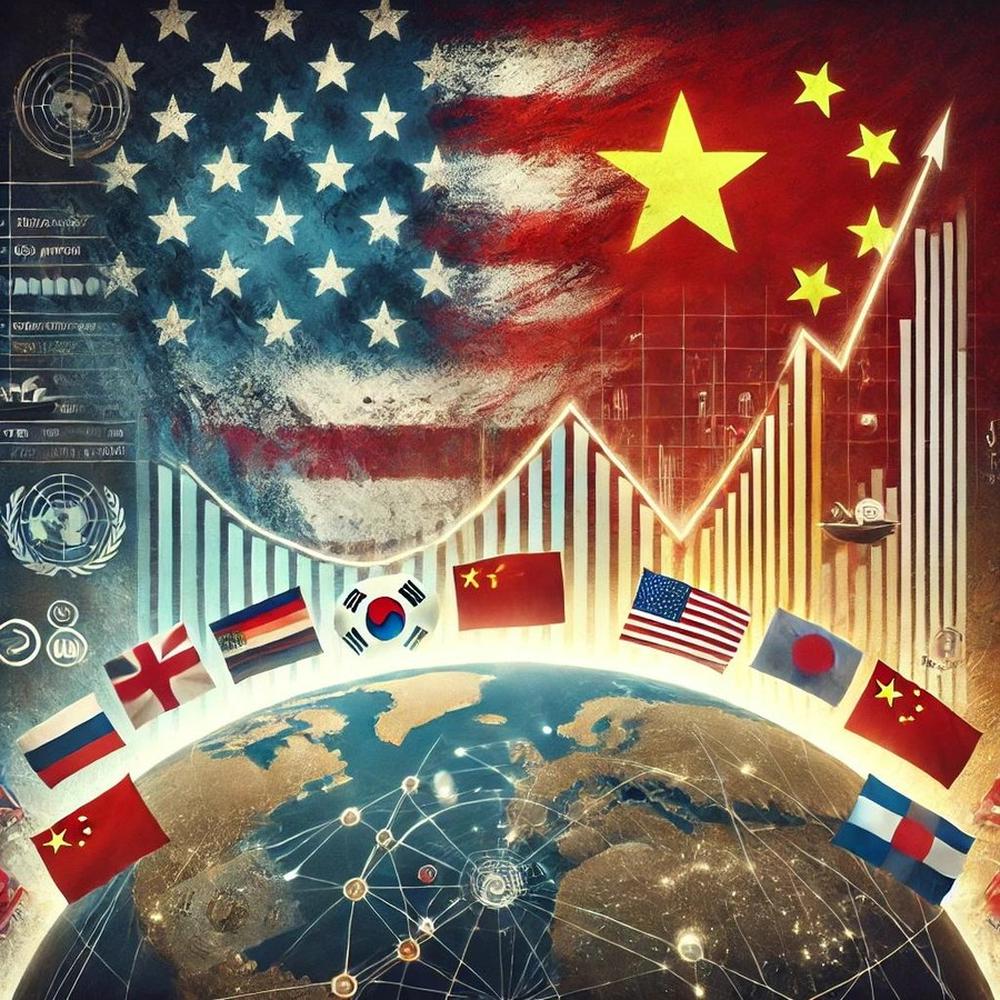
▶ The United States' reduced interest in global leadership, especially under Trump’s policies, is leading to a retreat from liberal internationalism, opening opportunities for China to expand its influence and shape a world order that prioritizes its own interests.
▶ American allies, particularly in Asia, face the prospect of increased pressure to accommodate or counterbalance China's influence as the US scales back its role as a global security guarantor and prioritizes "America First" policies over international commitments.
▶ The retreat from multilateralism and liberal values mirrors the interwar period’s shift toward unilateralism and autarky, raising concerns that reduced US support for international cooperation may destabilize the global order and embolden aggressive states.
A second Trump Administration will likely further withdraw the United States from global leadership. The new White House team and its supporters argue this will be good for Americans. That proposition is hotly debated. What seems more certain is that China will gain international influence relative to the USA, while American allies will need to contemplate uncomfortable changes.
Pax Romana refers to the two-century period of relative international stability enforced by ancient Rome at the height of its imperial power. By the end of the Second World War, the United States similarly attained an unparalleled position of global influence. The relative economic and military power of the United States were necessary conditions for Pax Americana, but equally necessary was an internationalist foreign policy. Washington has sought to actively shape the outside world to make it hospitable for US security and prosperity. This included thwarting hostile regimes, forming and nurturing alliances, and making and enforcing international rules.
For much of this period America has advocated freer international trade, not only to deliver lower prices to US buyers, but also out of a belief that economic interdependence disincentivizes war. The US government has promoted democratization and human rights partly because of America’s traditional self-image, but there is also a consensus among policy-makers that democratic states tend to have peaceful relations with each other.
The health of Pax Americana was already in doubt prior to Trump’s re-election. Among the US public, enthusiasm for maintaining an international leadership role seems to be waning after two costly and seemingly failed interventions in Afghanistan and Iraq. The price the USA pays to sustain hegemony is growing higher because of cooperation among adversaries who find common cause in opposing US global leadership. China, Russia, North Korea and to some extent Iran can jointly push anti-US diplomacy, undermine the US international agenda (such as good governance, a dollar-based financial system, and sanctions against outlaw regimes). They can also create multiple simultaneous crises to overwhelm the US ability to respond. America has also undermined its own hegemonic strength. Both major US political parties opposed participation in the Trans-Pacific Partnership, a strategic if not an economic blunder because of the missed opportunity to counter China’s surging influence. Most seriously, America has outsourced much of its manufacturing capacity to China and allowed its defense industrial base to wither. The US ability to supply itself with sufficient materiel to prevail in a major war is now in doubt.
Pax Americana has several defining features. One is promoting US values in the form of liberal international norms, rules and institutions. This stems from “American exceptionalism,” which includes the idea that the United States has a responsibility to populations in other countries to encourage their governments to democratize and protect human rights. A second feature is frequent intervention in distant regions to shape global affairs to America’s advantage. This is manifest in forward deployed military bases, alliances, and US forces frequently fighting in far-flung places. Third is a US willingness to provide international public goods, such as keeping the oceans open to international commerce and supplying disaster relief, even if such actions do not bring the US an immediate and tangible financial benefit.
The Trump approach to foreign policy not only lacks each of these features, it disparages them. Trump doesn’t accept the idea that America should aspire to be an exemplar for other countries. He is uninterested in promoting human rights internationally. He believes international commitments benefit other countries more than Americans. He thinks alliances cheat the US because allies get American protection too cheaply or without reciprocation.
Michael Anton, who was a senior official during Trump’s first term, says his former boss’ foreign policy was premised on a rejection of liberal institutionalism—which allegedly “is now well past the point of diminishing returns”—and a celebration of nationalism, because “putting our interests first will make us all safer and more prosperous.”
Trump and his supporters summarize their approach to foreign policy as “America first.” To be sure, Washington has always put its own interests first, as does every other national government. Trump’s approach departs from conventional postwar US foreign policy in his rejection of internationalism. He tends not to believe that a US-sponsored international order has intrinsic, long-term value. Rather, he demands that economic and security cooperation should have an immediate and visible payoff.
Whether Trump would actually abandon US allies is uncertain, but that outcome is plausible. He has famously criticized America’s NATO, Japan and South Korea alliances. He has spoken specifically about ending the US alliance with the Republic of Korea. A consistent theme from both Trump and strategists within his camp is that US allies must pay more for the privilege of US protection. He often says South Korea, in particular, is an expensive security free-rider. During his first term, Trump wanted the ROK to increase its contribution to the cost of maintaining US bases from $1 billion per year to $5 billion. After leaving office he said South Korea would pay the US $10 billion per year if he was president. Trump reportedly hoped to withdraw US troops altogether. He agreed with the North Korean government that US-ROK joint military exercises are “provocative.” He has said South Korea getting its own nuclear weapons is a better alternative to the US-ROK alliance.
A world without the US playing the role of security backstop would force some countries in Asia to decide whether to accommodate China or more openly balance against China, which they might do internally (by raising their defense budgets, considering acquiring nuclear weapons, etc.) or externally (by forming anti-China coalitions with other threatened countries).
If America becomes less interested in influencing global governance, there will be a correspondingly greater opportunity for China to shape international affairs to suit Beijing’s agenda. The Chinese government is steadily increasing its sway over important world government organizations such as the United Nations. The PRC under Xi Jinping is actively promoting its own alternative vision of international relations. Chinese official commentary claims China is working toward a world of “common security” for all states, one based on “traditional [Chinese] values of good neighborliness, benevolence, empathy and non-aggression,” and one that has no dominant power.
The PRC’s actual behavior is different: supporting Russia’s invasion of Ukraine both materially and diplomatically; bribing foreign elites to support narrow Chinese interests; using economic leverage to coerce countries that offend China’s political sensibilities; bullying neighboring states to accept expansive Chinese territorial claims; and expecting smaller countries to defer to Beijing’s preferences.
With an America less interested in international leadership, China will pursue its own version of hegemony. Beijing’s most fundamental interests will be to ensure China’s security (as defined by the CCP) and prosperity, including access to energy, high technology and foreign markets. China will also seek to control the narrative about China in other countries. A shift from US to Chinese influence would bring a general retreat from infusing liberal values into international rule-making. Specifically, China would not support efforts to pressure national governments to allow their citizens civil and political liberties. In a China-dominated region, neighboring countries such as Korea would come under military, diplomatic and economic pressure to refrain from taking major foreign policy decisions of which Beijing disapproves.
Trump says tariffs are a useful policy tool. He has proposed a 10 percent tariff on all foreign imports into the US (the current average US tariff rate is 2 percent) except for those from China, for which he proposes a 60 percent tariff and revocation of China’s permanent normal trade relations (formerly known as “most favored nation”) status. In November he threatened a 25 percent tariff on all imports from Canada and Mexico because of illegal immigration and drugs crossing America’s northern and southern borders.
There is widespread speculation that Trump will halt US support for Ukraine’s effort to defend itself against the Russian invasion. Such a policy by the US would countenance a victory for naked aggression, creating a more permissive environment for other potential acts of aggression. Japan and South Korea are worried that the perception of Russia achieving success in Ukraine through military force would jeopardize Asia’s security.
Reduced American support for an international liberal order might reduce its appeal and viability. Instead, momentum might shift away from multilateralism and toward states seeking wealth and security through unilateral approaches. Something similar happened during the previous century. In the 1920s, largely as a reaction to the terrible and seemingly pointless destruction of World War I in Europe, the major states strove to build a system of mutually reinforcing agreements to pursue their interests through cooperation within international norms and institutions. These included the League of Nations, a forerunner of the United Nations, and the Washington Conference arms control treaties. The world economic crisis that began in 1929, however, shook confidence that states could prosper through integrating themselves more deeply with the global economy. Major powers turned from international cooperation toward unilateralism, regionalism and autarky. The United States Congress passed the Tariff Act of 1930, which raised tariffs on some 20,000 foreign goods and caused other countries to retaliate in kind, worsening the effects of the Great Depression. The United States never joined the League of Nations, undermining its credibility. Japan, Germany, Italy and Spain withdrew during the 1930s. The states that became known as the Axis Powers turned to using military force to pursue their national interests. Scholar Akira Iriye argues in his 1981 book Power and Culture that Japan was initially an enthusiastic supporter of the Anglo-American international order of the 1920s, but turned to fascism and imperialism only after the Western countries themselves seemed to abandon their own liberal approach to international relations.
This is not to predict that Trump’s election will lead to war. But it will, at least in the short term, reduce American support for liberal and multilateral approaches to international security and trade. Trump returning for a second term means the US commitment to its own internationalist postwar foreign policy has become shaky. The countries of Asia must grasp and adjust to what might be a new post-US paradigm of global affairs.
Denny Roy is a Senior Fellow at the East-West Center in Honolulu specialising in Asia-Pacific strategic and security issues. He holds a PhD in political science from the University of Chicago and is the author of four books and many journal and op-ed articles.
